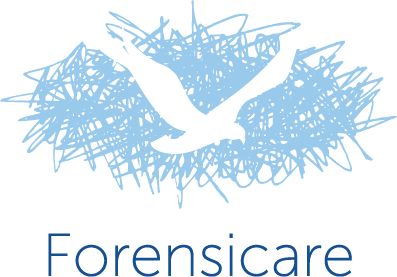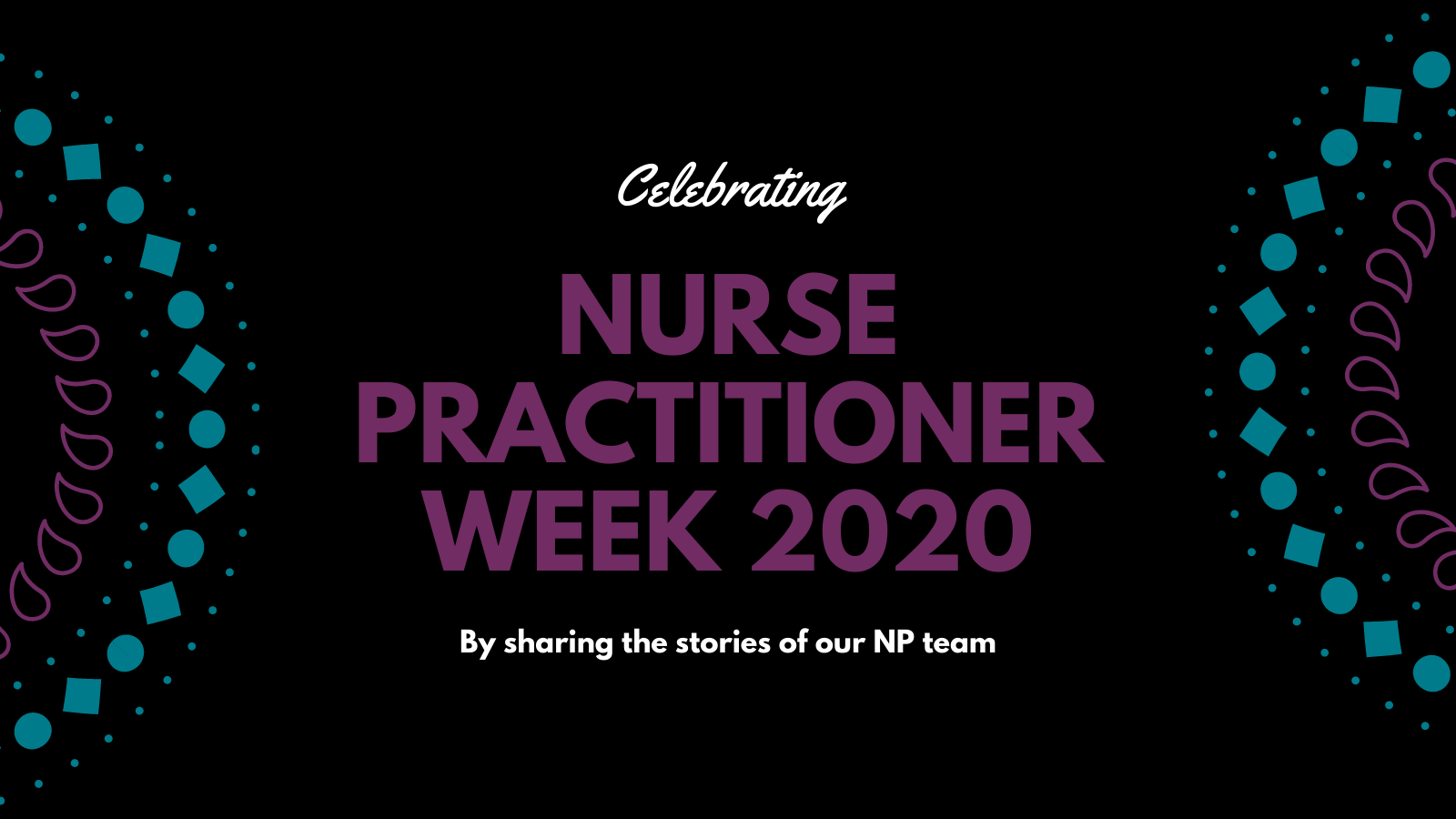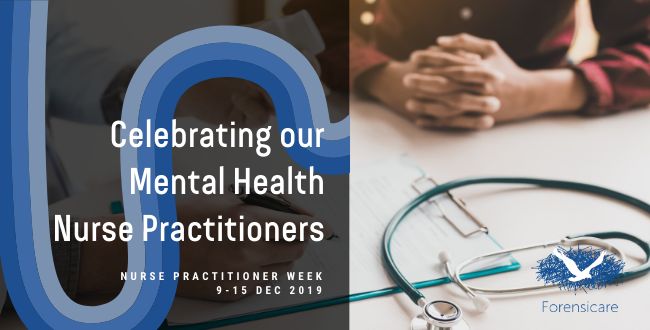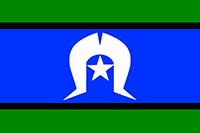Highlighting our nurse practitioners for Nurse Practitioner Week 2020
It’s Nurse Practitioner Week 2020, and today, we celebrate our team of eight nurse practitioners (and one nurse practitioner candidate) at Forensicare.
And what better way to celebrate the team than to share a little about who they are, what they do as a nurse practitioner, and why it matters.
Meet Louise, one of Forensicare’s nurse practitioners, and Erik, Forensicare’s nurse practitioner candidate.
How long have you been working in Forensicare?
Louise: “I have been working for Forensicare for about 3.5 years. Prior to this, I was part of a community area mental health services team. I was aware Forensicare had a growing team of NP’s, and I wanted to be part of that. I spent the majority of my time as a candidate at Melbourne Assessment Prison, which was a great introduction to the criminal justice system, before moving to the Dame Phyllis Frost Centre shortly before being endorsed.”
Erik: “I have been working with Forensicare for almost 1 year in the role of NPc, although I worked for Forensicare prior to this role and returned after a period working in an area mental health service. I am currently based at Dame Phyllis Frost Centre and have almost completed my first year of study after which I have a little break before the new semester starts in February.”
Why did you decide to become a nurse practitioner? How did you do it?
Both: “It felt somehow like a natural progression, rather than a decision. The nurse practitioner role in Australia has developed a lot in the last ten years, particularly in the mental health and drug and alcohol sector, so I guess with increased exposure to the role, it started to become more appealing and, in a way, feel more achievable.
There are educational and clinical requirements to achieve endorsement as a nurse practitioner, and the most straight forward way to achieve these is via an APHRA-endorsed Master of Advanced Practice Nursing.
Locally, this is offered at the University of Melbourne, which is where Louise studied, and Erik is currently enrolled. The University of Newcastle in New South Wales is another popular choice for the course. To complete the clinical components, you do need the support of your workplace, and ideally to be in a formal nurse practitioner candidate role which demonstrates advanced practice. But there are different ways to get there.”
What is a typical day for a nurse practitioner in prison like?
Louise: “Each day is different, and the NP is a very autonomous role, which we like. Typically, it involves a balance of clinical, non-clinical and systemic workload.
Mostly, you would have a busy clinic booked, so you’d start the day by reviewing the digital medical file and triaging your priorities. Your clinical work might take place in the medical centre or out on the units. Following this, you would write notes, and drop prescriptions at the pharmacy. Nurse practitioners attend and chair a lot of meetings, provide formal and informal supervision and clinical consultation. We also liaise with primary health care services, at-risk teams, consultants psychiatrists and psychiatric registrars as needed to discuss our patients, their proposed treatment, and so on.”
What kinds of decisions do you make as a nurse practitioner?
Louise: “Nurse Practitioners make most clinical decisions and are often able to oversee someone’s mental health care from point of entry to exit, which can be challenging, but very satisfying. Our decision-making responsibilities include diagnosis and treatment planning, frequency of review, discharge planning, need for admissions to units within in prison, inpatient assessment orders, referrals to allied health and other stakeholders, justice ratings, and at times, advice on placement. A huge part of our assessment is making decisions on risk: to self, others, and risk of relapse, and trying to formulate what all of these factors may look like within the custody environment.”
Erik: “Working in the correctional setting also comes with challenges that affect your decision-making ability. Access to patients can be difficult at times due to any number of issues related to the safe running of the prison. Finding suitable and safe space to conduct assessments and interventions can be challenging and patients can also be moved to different locations or being released without any or much notice.”
What is the most rewarding part of the role?
Louise: “For me, the most rewarding part of being a nurse practitioner is the ongoing, long-term case management of high-risk complex people. Although it is never good to see someone returning to custody, you can often just pick up where you left off, and you have a sense of being part of that person’s journey through custody.
Often, we see the best of patients when they are substance free, maybe on treatment and feeling less chaotic than they do in the community, so you get an opportunity to really tap into what matters to them, what kind of things help them feel well, and maybe help them connect with family for the first time in a while.”
Erik: “For me, the most rewarding part is being able to support a patient fully, from start to finish–from receiving a referral, to completing the assessment, providing diagnostic clarification, interventions and ongoing care and plans for discharge. I like to connect and sit with people, offer support however big or small it is, and just help out. We recognise their journey, and help them work towards a future where the patient can reconnect with the community, family and work, and giving them skills to limit the chance of returning into custody. I like being part of a team that are all working towards supporting a person’s unique road towards their recovery.”
What are your career options after being endorsed as a nurse practitioner?
Louise: “As well as clinical work, you may get involved with conducting research, policy development, as well as involvement professional bodies or specialised education. You can work within the private practice space as a nurse practitioner and there are billing codes established with Medicare for this. As well as the exciting roles within Forensicare, there is a lot happening across the state in the nurse practitioner area. Most new services and models of care seem to include an NP role.”
How has Forensicare supported you in becoming and working as a mental health nurse practitioner?
Erik: “Forensicare offers a unique pathway to become an endorsed nurse practitioner. It employs one of the larger nurse practitioner mental health groups in the state. To be able to do this in the correctional setting has its challenges, but the allocated supervision hours, support from management, nursing leadership psychiatrists, flexibility, local teams and the nurse practitioner group make the pathway to becoming an endorsed nurse practitioner much easier.
I found that when I started the course, I questioned a lot of things I had done and learned in the past. I am glad I have many years of working experience to take with me on my journey. The course pushes you to reflect not only on your academic skills but as a complete clinician. You won’t reach endorsement by just passing the academic units: it is education on multiple levels.”
What would you say to someone contemplating the nurse practitioner role? What activities would you recommend nurses do prior to securing a formal candidateship?
Erik: “Becoming a nurse practitioner is a long-term plan; so take your time–and remember, there’s more than one road to endorsement. A candidate position is not necessary, although does make it easier. Get a supervisor or mentor to help you map out your path. Being in the role of candidate currently, I do understand why there are clinical criteria required (such as a minimum of five year’s experience) before you can start the course. Don’t be afraid to change your path along the way, just keep your eyes on the prize.”
Louise: “I agree with Erik. You need to think about the end goal of feeling confident in your own clinical abilities at point of endorsement, but also fulfilling APHRA requirements to prove you are suitable candidate for endorsement. Get familiar with what APHRA define as “advanced practice”; essentially it is anything outside the usual scope of a registered nurse position. So think about putting yourself forward for secondments to positions like co-ordinators, nurse educators, and so on, as they will add to your evidence of advanced practice. Join committees if that is something you enjoy, as again, this adds to your portfolio. You can also join the state-wide nurse practitioner collaborative which meets once every six weeks or so.”
Thanks Louise and Erik, and happy Nurse Practitioner Week 2020!
Interested in a career in mental health nursing? Check out our Work With Us page today!






